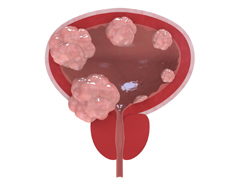Proteomics approach for diagnosing bladder cancer
Technological advances over the years have enabled high-throughput analysis of a large number of samples. The challenge, however, is to be able to translate the generated data into biomarker assays that could be used for clinical diagnosis EU –fundingof the DECANBIO project brought together experts in proteomics and transcriptomics to identify novel candidate biomarkers for bladder cancer in urine. Urine constitutes a largely unexplored clinical body fluid that could prove invaluable for biomarker discovery. To this end, partners collected over 1 000 urine samples of patients with bladder cancer and of controls for a biobank. These were linked to a database containing patient information, clinical and diagnostic data. Following the analysis of various literature sources, protein databanks and bladder cancer data, researchers generated a list of 270 proteins associated with bladder cancer. A large-scale proteomics screening of 69 patients and 30 controls was done to detect these proteins in urine samples. Scientists first performed two-dimensional (2D) electrophoresis of proteins from urinary samples. Then mass spectrometric analysis of peptides using accurate mass and retention time tags (AMT) was conducted. Researchers’ were thus able to calculate peptide mass for unique correlation to its parent protein. To exclude potential false positives results, partners developed selected reaction monitoring (SRM) mass spectrometry methods for accurately quantifying urinary proteins. Using this approach, it was possible to detect and validate over 330 peptides originating from 138 candidate protein biomarkers. Most importantly, a list of 24 biomarkers demonstrated differentiation between bladder cancer patients’ urine and normal patients’ urine (those suspected but negative for bladder cancer). The differential expression and implication of these proteins in bladder cancer should now be verified by ELISAs on larger cohorts. Another significant DECANBIO discovery was that some gene products were truncated or extended in bladder cancer patients and therefore should be detectable in the urine of those patients. A patent for this new concept of bladder cancer detection in combination with protein biomarkers is in preparation.







